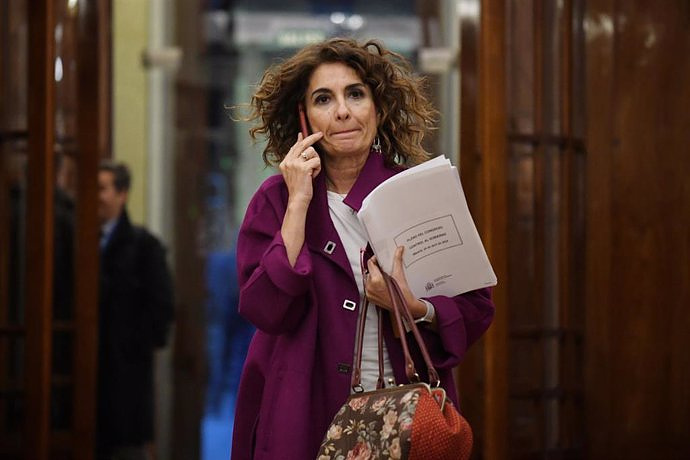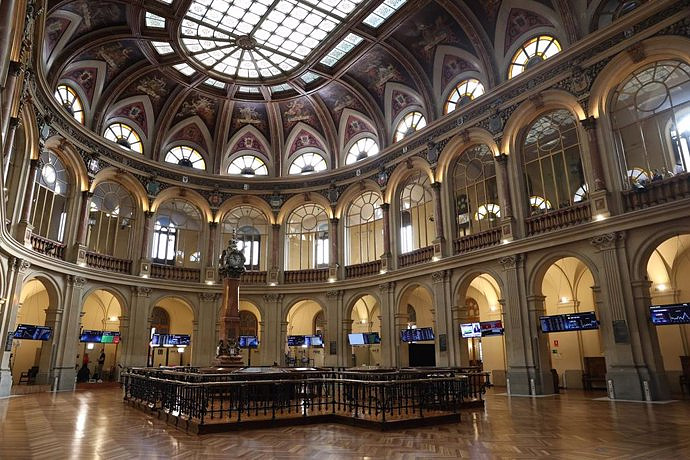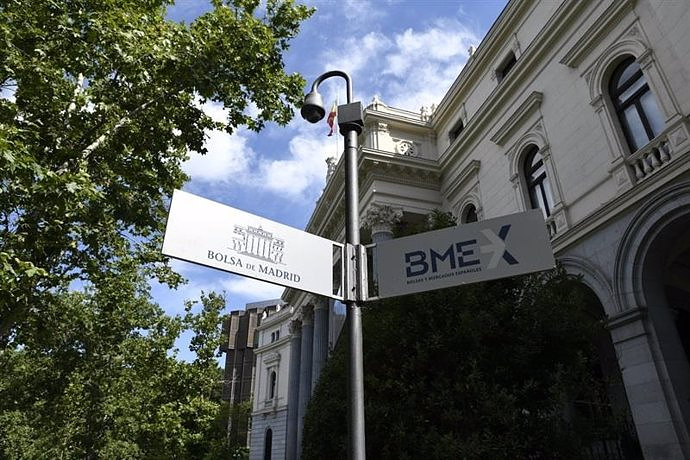MADRID, 27 Oct. (EUROPA PRESS) -
Police commanders of the Information Services of the National Police and the Civil Guard have stressed this Thursday the threat posed by the return of jihadists, stressing that land routes such as the Balkans are more worrying than those that access Spain by boat .
"In August we have practiced the detention of a returnee along the Balkan route, which is more worrying; when the returnees come by boat they are subject to a biometric check and in some way there is a review, but going through the land borders is more simple", has indicated the main curator Manuel Rodríguez García-Risco.
In his speech at the 9th Elcano Forum on Global Terrorism, García-Risco recalled operations by the General Information Commissariat against combatants who came from Algeria, but had returned from Syria through Africa "or some on plane flights to Nairobi".
In this way, it has highlighted the relevance of attending to the flows of returnees once the self-styled Caliphate of DAESH fell in Syria and Iraq, something that does not rule out that it could be reproduced in African countries such as Mali. "As it is, at any moment a sanctuary is reproduced and people start to travel and train there, and we have them here next door," he pointed out.
Among the risks, he has cited the release of prisoners such as the 800 who managed to get out of a jail in Nigeria or the "facilities" they find to return from Turkey.
In opposition to this, he has spoken of the "structured return" by institutions of people held in camps in northern Syria. He has also cited the Taliban's return to power in Afghanistan, seeing it as a threat that some "could sneak in" on the fringes of the refugees.
The Chief Colonel of the Civil Guard, Francisco José Vázquez, has stressed the "enormous activity" that is often carried out outside criminal proceedings by prosecutors and judges for the early detection of radicalism, acknowledging that it can currently be said that it is the main "headache".
In this sense, he has alluded to cases where there is a "psychopathy" and has cited recent Civil Guard operations such as the one that led to the arrest of a former Spanish soldier arrested in Zaragoza and who lived in the town of El Pont de Suert (Lérida ).
To questions from the moderator, the person in charge of the Civil Guard has debated the acquittal sentences of detainees for jihadist terrorism, pointing out the difficulty that it has in many cases to substantiate criminal types implanted in 2015 such as self-indoctrination with evidence.
"We have been learning as a result of the sentences," Vázquez assured, in line with a previous intervention by his colleague from the Police. "It is not an excuse, but we make decisions with non-existent preparatory acts", this command of the Civil Guard has continued. "It is more complicated to instruct a crime of self-indoctrination than an ETA crime with 20 deaths or a kidnapping," he pointed out.

 Exploring Cardano: Inner Workings and Advantages of this Cryptocurrency
Exploring Cardano: Inner Workings and Advantages of this Cryptocurrency Seville.- Economy.- Innova.- STSA inaugurates its new painting and sealing hangar in San Pablo, for 18 million
Seville.- Economy.- Innova.- STSA inaugurates its new painting and sealing hangar in San Pablo, for 18 million Innova.- More than 300 volunteers join the Andalucía Compromiso Digital network in one month to facilitate access to ICT
Innova.- More than 300 volunteers join the Andalucía Compromiso Digital network in one month to facilitate access to ICT Innova.-AMP.- Ayesa acquires 51% of Sadiel, which will create new technological engineering products and expand markets
Innova.-AMP.- Ayesa acquires 51% of Sadiel, which will create new technological engineering products and expand markets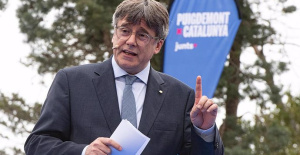 Puigdemont believes that Sánchez can present a question of trust and "clarify all doubts"
Puigdemont believes that Sánchez can present a question of trust and "clarify all doubts" RELEASE: Automation Anywhere names Tim McDonough director of marketing
RELEASE: Automation Anywhere names Tim McDonough director of marketing RELEASE: Terra Drone, Unifly and Aloft launch UTM development for AAM aimed at global markets
RELEASE: Terra Drone, Unifly and Aloft launch UTM development for AAM aimed at global markets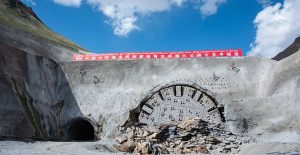 STATEMENT: The construction of the Gudauri tunnel in the Kvesheti-Kobi Highway Project of the North-Su Corridor has been successfully completed
STATEMENT: The construction of the Gudauri tunnel in the Kvesheti-Kobi Highway Project of the North-Su Corridor has been successfully completed How Blockchain in being used to shape the future
How Blockchain in being used to shape the future Not just BTC and ETH: Here Are Some More Interesting Coins Worth Focusing on
Not just BTC and ETH: Here Are Some More Interesting Coins Worth Focusing on Retrópolis brings the golden age of video games and computing to the UPV
Retrópolis brings the golden age of video games and computing to the UPV Looking for video games that value the neighborhoods of Valencia
Looking for video games that value the neighborhoods of Valencia UPV researchers improve the efficiency of air conditioning systems using a geothermal heat pump
UPV researchers improve the efficiency of air conditioning systems using a geothermal heat pump València is committed to citiverse and smart tourism to be "the reference technological hub of the Mediterranean"
València is committed to citiverse and smart tourism to be "the reference technological hub of the Mediterranean" A million people demonstrate in France against Macron's pension reform
A million people demonstrate in France against Macron's pension reform Russia launches several missiles against "critical infrastructure" in the city of Zaporizhia
Russia launches several missiles against "critical infrastructure" in the city of Zaporizhia A "procession" remembers the dead of the Calabria shipwreck as bodies continue to wash up on the shore
A "procession" remembers the dead of the Calabria shipwreck as bodies continue to wash up on the shore Prison sentences handed down for three prominent Hong Kong pro-democracy activists
Prison sentences handed down for three prominent Hong Kong pro-democracy activists ETH continues to leave trading platforms, Ethereum balance on exchanges lowest in 3 years
ETH continues to leave trading platforms, Ethereum balance on exchanges lowest in 3 years Investors invest $450 million in Consensys, Ethereum incubator now valued at $7 billion
Investors invest $450 million in Consensys, Ethereum incubator now valued at $7 billion Alchemy Integrates Ethereum L2 Product Starknet to Enhance Web3 Scalability at a Price 100x Lower Than L1 Fees
Alchemy Integrates Ethereum L2 Product Starknet to Enhance Web3 Scalability at a Price 100x Lower Than L1 Fees Mining Report: Bitcoin's Electricity Consumption Declines by 25% in Q1 2022
Mining Report: Bitcoin's Electricity Consumption Declines by 25% in Q1 2022 Oil-to-Bitcoin Mining Firm Crusoe Energy Systems Raised $505 Million
Oil-to-Bitcoin Mining Firm Crusoe Energy Systems Raised $505 Million Microbt reveals the latest Bitcoin mining rigs -- Machines produce up to 126 TH/s with custom 5nm chip design
Microbt reveals the latest Bitcoin mining rigs -- Machines produce up to 126 TH/s with custom 5nm chip design Bitcoin's Mining Difficulty Hits a Lifetime High, With More Than 90% of BTC Supply Issued
Bitcoin's Mining Difficulty Hits a Lifetime High, With More Than 90% of BTC Supply Issued The Biggest Movers are Near, EOS, and RUNE during Friday's Selloff
The Biggest Movers are Near, EOS, and RUNE during Friday's Selloff Global Markets Spooked by a Hawkish Fed and Covid, Stocks and Crypto Gain After Musk Buys Twitter
Global Markets Spooked by a Hawkish Fed and Covid, Stocks and Crypto Gain After Musk Buys Twitter Bitso to offset carbon emissions from the Trading Platform's ERC20, ETH, and BTC Transactions
Bitso to offset carbon emissions from the Trading Platform's ERC20, ETH, and BTC Transactions Draftkings Announces 2022 College Hoops NFT Selection for March Madness
Draftkings Announces 2022 College Hoops NFT Selection for March Madness



